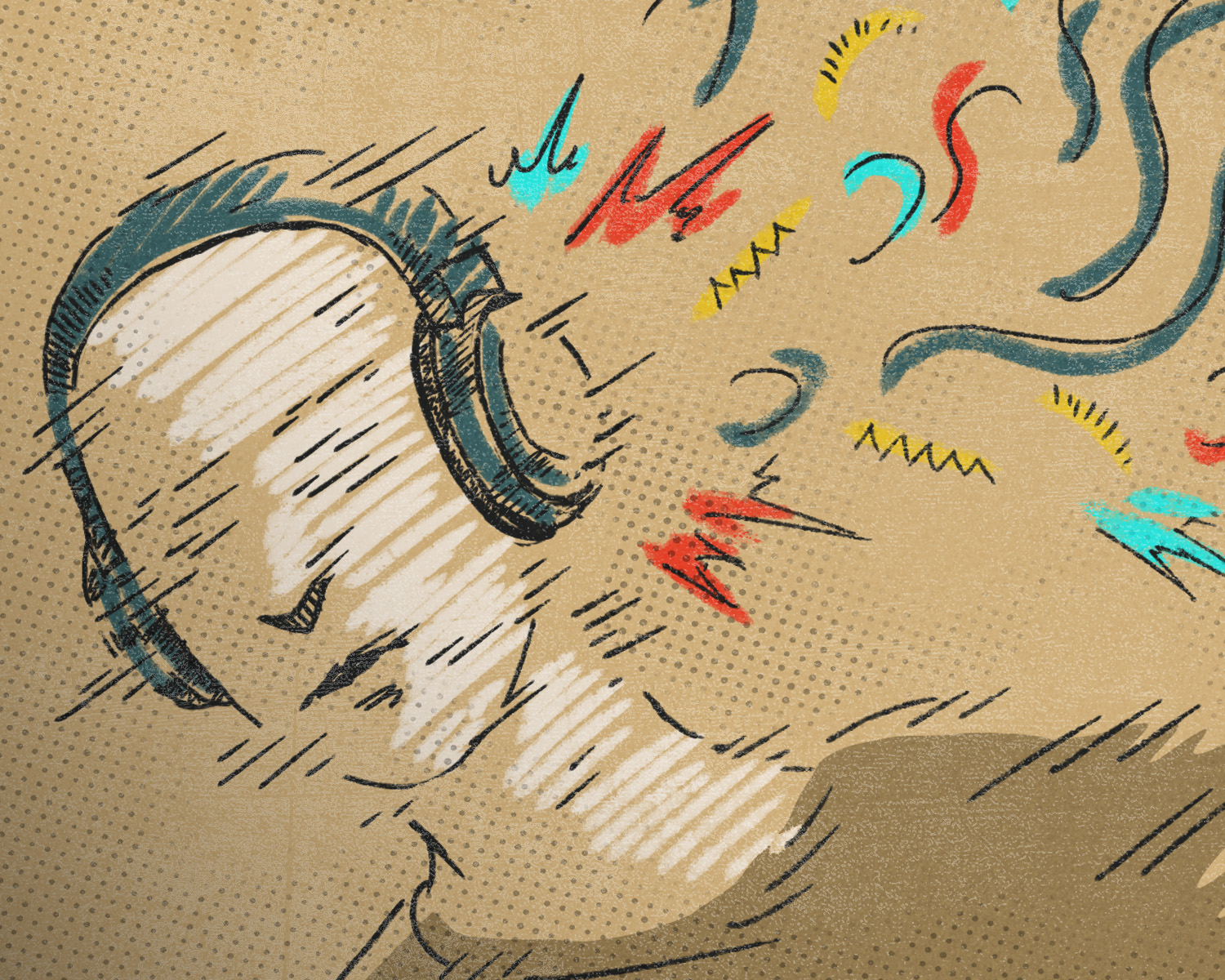The phrase, “Music is my therapy,” gets thrown around often in our society constantly inundated with musical entertainment and media. Often mentioned as a joke, the validity of this statement had failed to fully resonate with me until I grew older and began to experience the breadth and depth of the musical language. I no longer wondered why the rhythms of African drums in tribal beats or the soul-stirring melodies of the Koto in 天球 (translated Heavens Cry) unlocked a vault within the depths of my mind and soul. Upon further research, it was revealed that my euphoric experiences were not merely magical highs. Instead, they were a scientific connection between my mind and the music that supported deeper implications than I could have previously imagined.
In one of Stanford’s most recently published studies, “The Powerful Impact of Music”, the potency of music is revealed as more than provoking emotion or inspiring nostalgia. From their studies, it was found that listening to music serves as a free and accessible method for reducing anxiety, blood pressure, pain, stress, and heart rate while improving sleep quality, mood, mental alertness, and memory. All genres of music activate many sectors within the brain, including the temporal lobe, cerebellum, amygdala, hippocampus, and regions of the reward system. In other words, music activates the brain, and this activation has been proven to be capable of altering brain structure and function after immediate and repeated exposure.
In a Harvard study, “Music and the Brain”, the healing capacities of music were also tested firsthand as they recorded the “light up” responses of hospital patients and assisted living facilities as they encountered nostalgic tunes. When applied beyond the controlled experimental environment, the concept of music as an undercover therapy unveiled an opportunity for a more readily available method to approach mental, emotional, and soul care. One such example of this concept is the development of Spiritune. In partnership with leading music therapists and neuroscientists at Stanford and NYU, paired with musicians and technologists, Jamie Pabst developed a musical therapy app that can transition one’s mood from current to desired via fine-tuned audio experiences based on input mood data. As with anything promising such an unbelievable result, audiences must be skeptical, and Pablo Ripollés, PhD, the associate director of NYU’s Music and Auditory Research Laboratory, was certainly within that camp. He was so determined to demystify the app that he conducted a study about its effectiveness and was astounded to conclude that the app was able to noticeably change participants’ moods in ten minutes or less.
Given the possibilities presented by various sources of research and applications of music in medicine, I believe there is hope for more accessible resources that help to encourage support for all brackets of individuals overcoming childhood trauma, PTSD, addiction, stress, depression, anxiety, etc. Every person is deserving of care and support that assists with the healing of the mind as well as the heart since that is the origin of all of our creativity, ideas, and, most importantly, our identities. With that being said, is wholeness as expensive and exclusive as the media describes it to be? Is it possible that one of the keys to our healing is so simple that it’s almost undercover? The music in me and you might be one of the keys to set us free.
Written by: Genesis Strother


